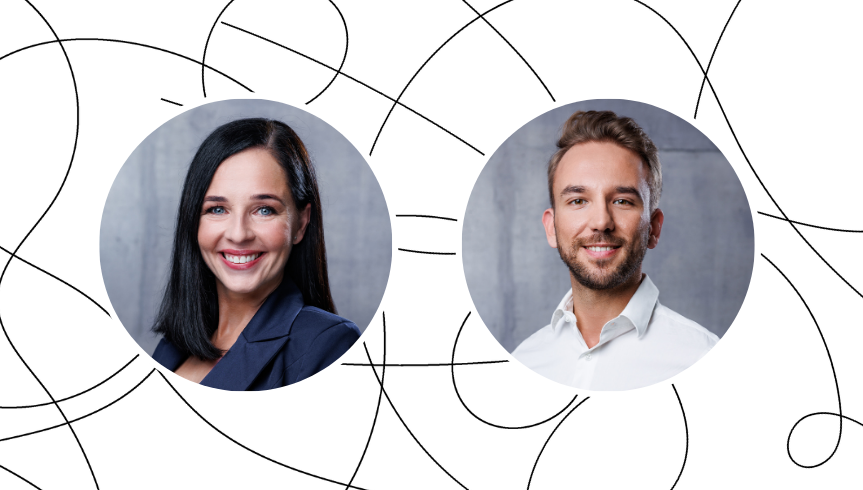Voices of AgEnRes - Interview with Krisztina Tóth and Diego Ibáñez
The AgEnRes project relies on expert teams to deliver its ambitious goals, and Work Package 9 (WP9) is no exception.
Responsible for Communication, Dissemination, and Exploitation, WP9 is led by Krisztina Tóth, Senior Manager, and Diego
Ibáñez Rodríguez, Communication Manager, both from GEONARDO. Together, they
ensure that AgEnRes reaches its target audiences effectively, translating complex scientific findings into actionable
insights and fostering engagement across sectors.
In this interview, they share their perspectives on their organisation’s role, the project’s challenges, and the
potential impact on agricultural communities.

Interviewer: Could you briefly introduce your organisation and its role in the project?
WP9: We are representing GEONARDO, where we lead the Communication, Dissemination, and Exploitation efforts for AgEnRes. GEONARDO is an innovation and technology company focused on tackling complex environmental challenges. With over 25 years of expertise, we specialise in renewable energy, resource efficiency, circular economy, and climate change.
Our extensive experience in European Projects and communication allows us to create a strong dissemination strategy
for projects like AgEnRes, ensuring stakeholder engagement and extending the project’s impact well beyond its
duration. Our goal is to make sure that the results we achieve have a lasting, positive effect on society.
Interviewer: What are the main challenges you foresee in achieving the project goals, and how do you plan to address them?
WP9: One of the biggest challenges will be translating the project’s technical results into information that’s accessible to a wide audience. AgEnRes is highly specialised, with scientific partners and modellers producing complex data and insights. Our task will be to synthesise these findings into clear, engaging content that resonates with both general audiences and specific stakeholders who can directly benefit from it.
Reaching those specific audiences will also be key, and we are designing our strategy to meet both goals.
Interviewer: How do you see the project's outcomes benefiting the agricultural communities?
WP9: In several impactful ways! AgEnRes is working on providing accessible, ready-made tools and resources that agricultural stakeholders can use to make informed decisions. This support can help them improve their practices and potentially their economic outcomes.
With so much information out there, we aim to create a reliable, curated source where agricultural stakeholders can
find dependable insights tailored to their needs—giving them the tools to act confidently and sustainably in a rapidly
changing environment.
Interviewer: Are there any exciting developments or milestones you are looking forward to in the project?
WP9: For us in the communications team, the most exciting part will likely be towards the project’s conclusion, when we see the impact of the community we have built and how it has connected stakeholders inside and outside the project.
If we had to pick one specific milestone, it would be the launch of the stakeholder community. This community group
will serve as the project’s core interaction hub, a place for stakeholders to collaborate, provide feedback, and
access project resources. It is a bridge between the project’s outcomes and the real-world needs of the community, and
we are excited to watch it grow.
Interviewer: Is there a message you would like to share with stakeholders and the wider community about the project’s importance?
WP9: Absolutely. AgEnRes is incredibly timely given the challenges agricultural communities have faced recently—from the COVID pandemic to the effects of the conflict in Ukraine. These events have made evident the need for resilience in agriculture.
This project aims to help farmers become more adaptable, supporting the entire European value chain. By providing the
tools for resilience, AgEnRes is not only empowering farmers but also helping to stabilise food availability and
pricing, which impacts all of us.
Interviewer: Perfect. Thank you so much for your time!
